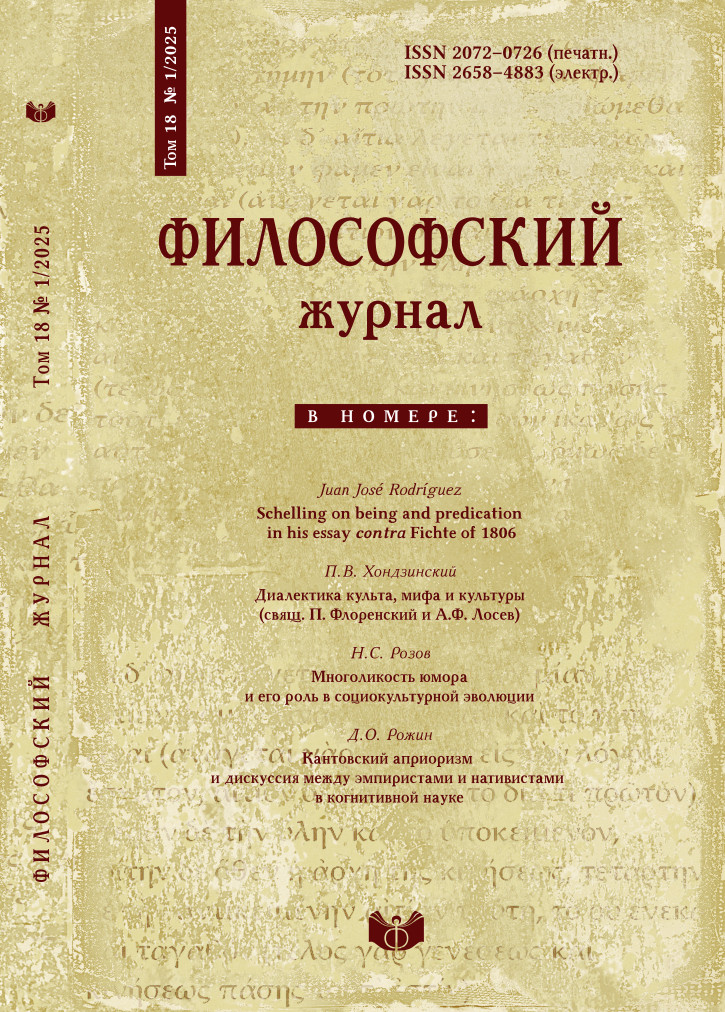The variable understanding of humor and its role in sociocultural evolution
DOI:
https://doi.org/10.21146/2072-0726-2025-18-1-85-100Keywords:
humor, laughter, theories of humor, essence of humor, proto-humor, interactive ritual, solidarity, social norms, cultural patterns, valuesAbstract
The article identifies essential features characteristic of different stages of development and types of humor, and discusses the role of humor in historical changes, social and cultural evolution. Humor gets external definitions and criteria that allow to distinguish two stages of proto-humor, and the criterion of full-fledged humor is set. The classical theories of humor (superiority, relief, and incongruity) and main modern theories (benign violation, appropriate incongruity, false alarm, attitude shift, etc.) treat diverse phenomena but have definite invariants. Successful humor episodes (when people involuntarily laugh at an amusing combination of meanings) have main features of interactive rituals (E. Durkheim, E. Goffman, R. Collins), which allows us to reconstruct the hidden meanings and bases of participants’ reactions. Such well-known phenomena as joint intentionality, synchronization of emotional states, bursts of emotional energy, positive reinforcement, group membership dynamics, etc. are significant in each successful humor episode. The main features of the combination of meanings in the stimulus of humor according to the most plausible theories, taken disjunctively, form a “confusion” as a basic comic factor. Humor manages to survive in human prehistory and history because its functionality as a provision for individual, group, as well as long-term social needs and concerns. Humor makes a significant impact in affirmation of social norms, orders, and cultural patterns by hidden symbols of worship in humor episodes as interactive rituals. At the same time, laughter and humor play a substantial role for loosening and changing orders, and these processes have attracted the attention of researchers in recent years. A sketch model presents how laughter and humor act in “strengthening” and “undermining” roles in different phases of historical cycles and the evolutionary spiral.






